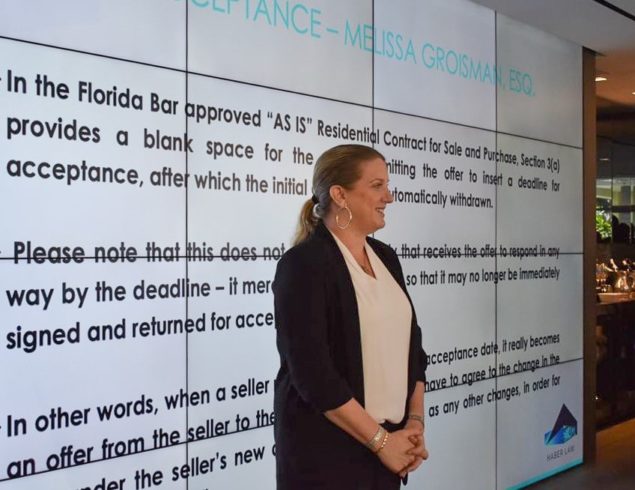|
Getting your Trinity Audio player ready...
|
 The City of Aventura recently passed an Ordinance to regulate structural oversight for community associations in the aftermath of the Champlain Towers tragedy. The Ordinance requires the “Responsible Person,” defined as the Association’s President, a property manager, or qualified person the President designates, to share all engineering, architectural, and life-safety reports conducted on the building with the City within 48 hours of receipt. Failure to meet the deadline may result in daily fines up to $500, as well as up to 60 days in prison for the Responsible Person. Each day the Responsible Person fails to share the reports constitutes a separate offense. While the City’s intent in enacting this Ordinance is commendable, it is unbalanced with the realities facing Board members, a majority of whom hold office on an unpaid, volunteer basis. Stricter laws with respect to condominium safety and transparency are beneficial and necessary, but Aventura’s Ordinance is harsh and may lead to some unintentional consequences.
The City of Aventura recently passed an Ordinance to regulate structural oversight for community associations in the aftermath of the Champlain Towers tragedy. The Ordinance requires the “Responsible Person,” defined as the Association’s President, a property manager, or qualified person the President designates, to share all engineering, architectural, and life-safety reports conducted on the building with the City within 48 hours of receipt. Failure to meet the deadline may result in daily fines up to $500, as well as up to 60 days in prison for the Responsible Person. Each day the Responsible Person fails to share the reports constitutes a separate offense. While the City’s intent in enacting this Ordinance is commendable, it is unbalanced with the realities facing Board members, a majority of whom hold office on an unpaid, volunteer basis. Stricter laws with respect to condominium safety and transparency are beneficial and necessary, but Aventura’s Ordinance is harsh and may lead to some unintentional consequences.
First, the Ordinance’s 48-hour deadline is impractical and has severe penalties if unmet. A 48-hour deadline does not take into account any number of scenarios that can prevent directors from compliance, like traveling or spam folder delays. While there should be a deadline, the 48 hours with harsh penalties provides no proportionate benefit, while also deterring members from volunteering to serve on the Board.
The Ordinance also fails to consider that engineers have a separate obligation to immediately notify the City of any dangerous conditions. Further, the Ordinance provides no indication of an appellate process to contest such fines. This is especially problematic because there is no specific guidance as to what qualifies as a “report” that must be turned over to the City. Finally, the Ordinance fails to provide exceptions for privileged, confidential, or protected documents, as outlined in Florida Statutes Chapters 718 and 720.
While the purpose behind the new Aventura Ordinance is well-intentioned, the Ordinance itself does raise issues, including deterring competent Board members from investigating the condition of their buildings in the first place. Strangely, the Ordinance does not require any additional inspections, just delivery of reports issued. As it currently stands, the Ordinance imposes heavy penalties for unreasonable deadlines, provides unclear standards, and fails to take into account the practical realties community associations face in their operation, administration, and management.
For more information, visit haberlaw.com; mgroisman@haberlaw.com





